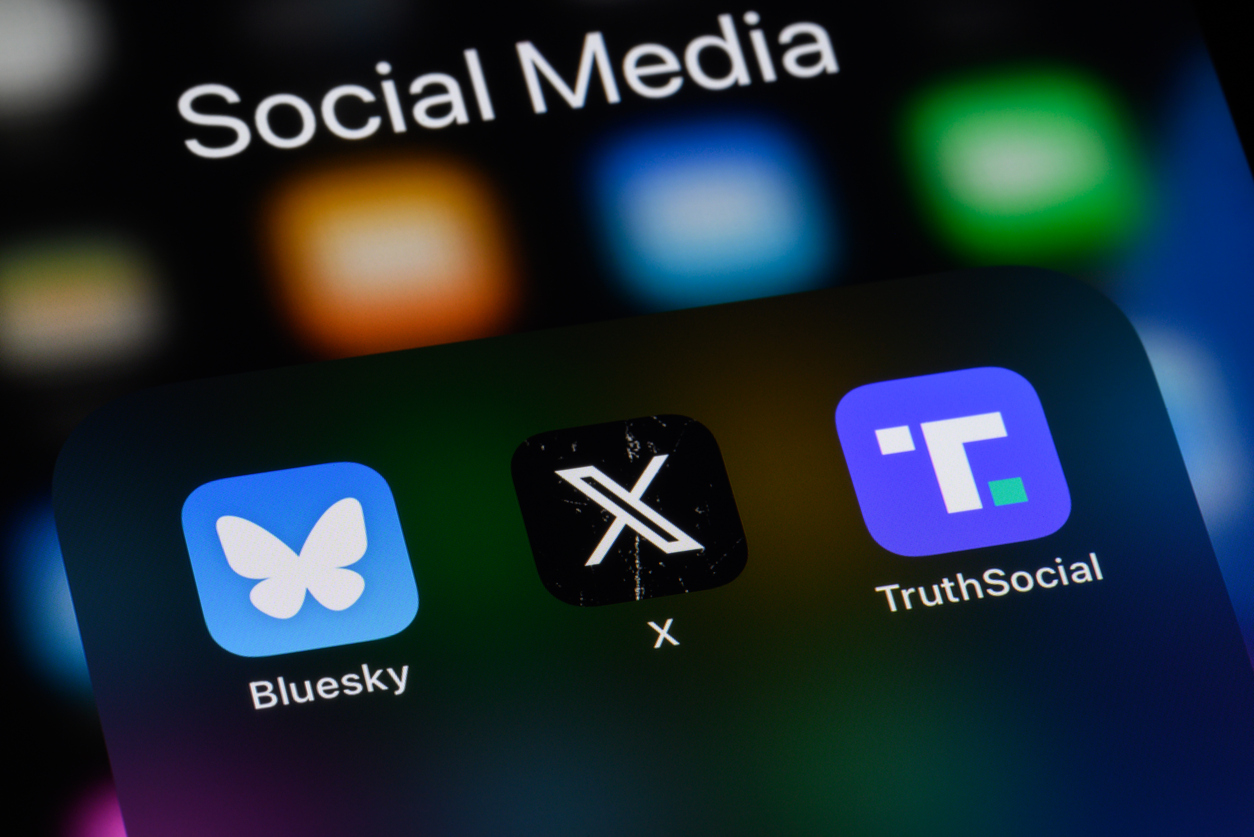One of many fascinating things to be learned from Morning After the Revolution: Dispatches from the Wrong Side of History, by former New York Times correspondent Nellie Bowles, is the process by which someone gets canceled. I was of course familiar with the concept of cancel culture and figured it meant blackballing the wicked, but I’d never gotten a clear idea of how the thing was actually done.
On the evidence of Bowles’s book, it means going on Twitter (OK, X) and posting derogatory tweets (X-pressions, whatever) about the offending party contemporaneously with others doing the same thing. The resulting pile-on is then read by, or at any rate comes to the attention of, editors, lecture organizers and similar gatekeepers in what may loosely be called “the culture,” who then spike publications, withdraw invitations and otherwise shut up the hapless target, who is never heard from again.
Perhaps you knew this. Perhaps everyone on the planet knows it except me; my ignorance of such matters is profound. Nonetheless, it’s worth pointing out — and for this we can thank Bowles — that the cancelados are never genuine enemies of the people, understood among cancel practitioners to mean Donald Trump, Tucker Carlson and that sort. Nothing shuts those guys up. (And yes, I know Trump got booted off Twitter and Carlson got fired from Fox. Were they never heard from again?)
Rather, it’s the lesser players on the media stage who bear the brunt, often wishy-washy liberals who have strayed from the received wisdom. Bowles confesses, in a passage that called to mind Shirley Jackson’s short story “The Lottery,” that she herself willingly participated in cancellations out of a queasy combination of group loyalty and careerism. Until the day she couldn’t and was called a racist, a watershed moment. A possible contributing factor — establishing cause and effect, or even simple chronology, is a recurring challenge in this book — was that she met, married and had a child with another “bad liberal.” In any case, although Bowles was never formally canceled, she knew the jig was up and withdrew from — well, she doesn’t explicitly say, although she quit the New York Times in 2021. But broadly speaking she depart-d the progressive milieu. Now for the big reveal. Bowles’s spouse is Bari Weiss, an American journalist of note who’s a non-man, a term for which Bowles displays an amused fondness — which is to say, someone who’s AFAB, for “assigned female at birth.” In other words, she — I’m talking about Weiss here, it’s easy to lose track in discussions of this sort — is a woman. So is Bowles. The two — you’ll forgive my belaboring the point — are a lesbian couple.
This will raise some eyebrows. I admit with chagrin it raised mine — the seeming disjunction of the people and their politics, I mean. Few now automatically assume all gay men are politically liberal — witness the Log Cabin Republicans. But it’s still common to expect lesbians, by reason of their sexual identity, to be progressive, as that term is now understood.
Granted, many of them are. Not long ago, Bowles was. Today, much of the left has concluded, or will conclude once they read this book, that she’s gone apostate, which by some lights she has. But nothing suggests she’s signed up as a Trumpista, a Republican or even a conservative. On the contrary, she calls herself a “hemming-and-hawing moderate.” Even that seems like an overstatement — she stresses her sympathy with and admiration for the progressive impulse.
Therein lies the importance of this book. It’s a critique of progressivism by someone who’s a progressive at heart but thinks modern adherents have taken the movement over a cliff.
Bowles acknowledges few will understand this — certainly not those on the right who think the first step on the road to perdition was gay rights, affirmative action, or giving women the vote. The left, meanwhile, has written her off. That leaves the center, the younger media contingent of which, judging from Bowles, could hold an organizing meeting in a broom closet. Still, I think the book will enjoy healthy sales, if only because of Bowles’s devastating takedown of progressive delusions. I won’t say progressive knuckleheads are paving the way for Donald Trump’s return, but they’re not doing much to show the left offers a better choice.
Bowles is most effective when she sticks to the traditional tools of journalism — visiting the scene, reporting what she sees and hears, naming names to the extent the reader can determine. We hear leftist protesters cuss out black cops. We listen in on workshops where abashed white liberals confess their inner racist whiteness and learn of the white woman who wrote an article entitled “White Supremacy Culture,” decrying such white racist characteristics as objectivity, perfectionism and a sense of urgency.
We meet an individual who walks naked with an allegedly erect penis past other naked individuals with vaginas in an LA spa, leading one of the latter to complain, only to be told the penis owner has a driver’s license saying they’re female and thus the spa’s hands are tied. This leads trans activists to organize a protest at the spa against transphobia, much of which consists of screaming at the cops. Later it’s learned the penis owner is a registered sex offender who has taken advantage of the fact that, in California, you can put down whatever sex you want on your driver’s license and that’s what you are.
The book has its defects. Bowles occasionally tosses out startling but unsupported remarks such as “if a parent resists these medical changes [evidently administration of puberty blockers and such to kids with trans tendencies], they can and do lose custody of their child.” Not saying she made that up, but when you make astonishing claims, you ought to provide a cite.
Perhaps the most alarming theme of the book is that major US media, and specifically the New York Times, are purposely slanting their coverage. Newsrooms have long skewed liberal, and the leftward tilt in the NYT’s coverage has been evident since at least 2016. To hear Bowles tell it, the paper’s staff now actively stifles dissent. When she was hired after Trump’s election, the paper conceived of itself as a citadel of resistance. With the outbreak of protests following the 2020 murder of George Floyd, this attitude became more extreme. Bowles is vague about how this happened — maddeningly so, frankly — but gives the sense that the NYT staff, and to some extent the national media generally, collectively decided a long-overdue day of reckoning had arrived and the job of journalists was to stand on the side of justice. This meant — I’m reading between the lines — there were things that could (and should) be said and things that couldn’t. In other words, there was a party line, which at the NYT was enforced by what Bowles calls Disinformation Experts.
Aha, you’re thinking — political commissars! That’s what I thought, but let’s not be too hasty. The DEs, it appears, were vocal types on the paper’s Slack messaging system who knew a lot about the nefarious doings of the right and had earned the respect of their peers. While reporting on a conservative group making funny viral videos that (I guess) promoted conservative views, Bowles was advised to talk to a DE, who directed her to a source that could characterize the funny-video maker as a purveyor of hate speech. She did as instructed — went above and beyond, in fact — and quotes a couple of paragraphs she added to her story. They’re pretty mild. Sure, she wrote what she was led to write, but as a practical matter, big deal.
There’s more, though. As the chaotic summer of 2020 wore on, Bowles grew curious about the Capitol Hill Autonomous Zone (CHAZ), a Seattle neighborhood abandoned by police that had come under the control of (her term) “masked vigilantes.” Shootings had occurred. She figured this was a story — who wouldn’t? — and pitched it to her bosses.
And got static about it — in particular, Bowles writes, from “a rising newsroom leader” who told her antifa — remember antifa, the militant anti-fascist movement? — was a non-story and shouldn’t be covered, presumably because it would play into the hands of the right.
Journalists are used to being warned off stories by guilty parties trying to avoid exposure. But to be warned off by a fellow journalist for ideological reasons — I found that shocking.
You may say this was an isolated event during a fraught time with no consequences. Bowles in fact went to Seattle and wrote a front-page story that made antifa and the left look bad. She acknowledges that calls to defund the police and such subsequently subsided. But she also suggests the revolution, as she puts it, has ineradicably taken root.
Possibly, but who knows? The Gaza war has shattered progressive solidarity. While this may ensure another four years of Trump — shudder — it’s also an opportunity to reconsider cherished but stupid beliefs. Here’s hoping Bowles has hastened that day.
This article was originally published in The Spectator’s June 2024 World edition.























Leave a Reply